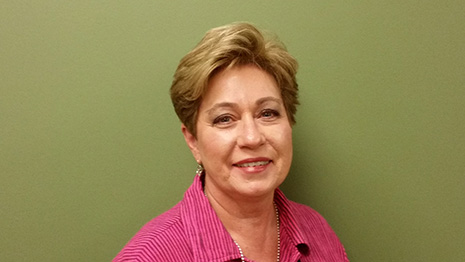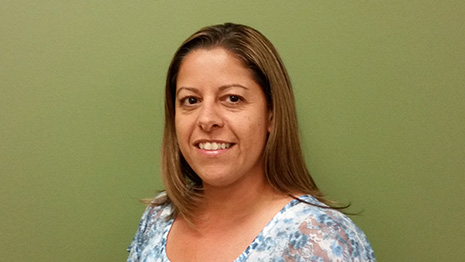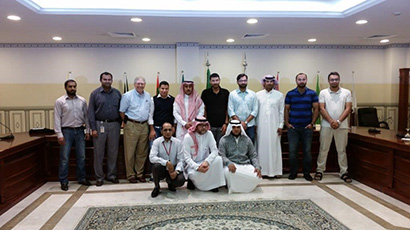President’s Message
An FSCI update from Keith Frangiamore, FSCI President
Thank you to all FSCI’s clients and customers for your continued loyalty and welcome to all our new clients!
The very busy year has continued at Fire Safety Consultants, Inc. Through September of 2016 we have experienced the busiest 9 month plan review period in FSCI history, and we continue to increase our client base. Thanks to you, our clients and customers, Fire Safety Consultants, Inc. continues to expand to 8 additional states. We continue to work hard, and we are even more committed to providing the highest quality services in a timely and efficient manner. We have added new staff, and they continue to gain knowledge and experience through the company’s training program.
Staff members continue to work tirelessly, even as we are in the hiring process for three more positions in the Illinois office. Based on FSCI’s high standard for new employees and past history, it may take several weeks or even months to fill all three positions.
Fire Safety Consultants, Inc. is also making some exciting staff changes that include a reorganization and change of responsibilities for senior consultants and division managers. In addition to a significant office space reallocation, we will continue to work on our goal of a seamless office integration between our main and regional offices. More to follow…
Thank you again for entrusting Fire Safety Consultants, Inc. with your plan reviews, field inspection services, seminars/presentations and consulting projects.
Delivering NFPA 72 Fire Alarm and Signaling Code Education in the Middle-East
NFPA Codes and Standards use is not solely limited to the United States as many may believe. The use of model fire protection and life safety codes, a long- time staple within the 50 states, Canada, and Western Europe, is also becoming more common in other parts of the world.
I am writing this article from a classroom at the Jubail Industrial College (JIC) in Jubail, Saudi Arabia along the Persian Gulf. For the past few days I have been presenting for the National Fire Protection Association (NFPA) the National Fire Alarm and Signaling Code seminar to a group of professionals from the Kingdom of Saudi Arabia. And, as I learned from my hosts from the JIC, I was the first instructor from NFPA to provide this, or any other, training on NFPA codes and standards at the JIC. The JIC has recognized that codes and standards published by the NFPA are an important tool in providing safe buildings and structures within the Kingdom and they desired to be the point of delivery. To that end, the NFPA and the JIC have signed a partnership agreement to provide the training that has been delivered over the last few days, and in the future other NFPA seminars to interested professionals from the Kingdom.
Getting to Jubail was a bit of an adventure. Beyond the long-haul flights, I endured an unexpected connection through Beirut, Lebanon before finally arriving in Saudi Arabia. Upon landing, I travelled by taxi 90 kilometers to the hotel. I only had four hours of sleep before starting the first day of instruction.
My classroom was a large space that looked more like a municipal board room. Large, leather high-backed chairs and a continuous u-shaped solid wood desk occupied the room for the students that attended. Two of the students were from the JIC’s electrical and fire protection program and the other students were from fire alarm related businesses within the Kingdom. For most of the students this was their first exposure to NFPA 72 even if they did routinely perform fire alarm work. Fortunately for me, all of the students spoke enough English for me to understand their questions and their responses to my questions.
During the presentation of more than 500 Power Point slides that make up NFPA’s Fire Alarm and Signaling Code program, the students asked many questions demonstrating their interest in understanding material that was foreign to them. Daily, additional time was spent reviewing the previous day’s materials. I found the students highly engaged and interested in the material.
During the program the students were introduced to a large amount of material related to initiating devices and notification appliances. The main topics discussed were fire alarm and control equipment requirements, emergency control function interface, supervising station alarm system requirements, and the requirements for fire alarm and emergency communication system documentation.
Typically, the Fire Alarm and Signaling Code seminar is delivered as a part of a Professional Development week seminar in the United States. The exam is typically taken at a later date and on-line allowing the students a chance to conduct additional independent study time with the material. However, the students studied and took the exam at the end of the three-day course. This required the students to study during the evening. When it was time for the exam, the students found the two-hour, NFPA Certificate of Educational Achievement examination challenging.
In January 2017, additional NFPA training will be hosted by the JIC. The NFPA 13 seminar on sprinkler systems will be delivered on the college site. Additional seminars including NFPA 101 will hosted in the future.
Presenting the National Fire Alarm and Signaling Seminar for the NFPA was an outstanding experience for me personally. As a member of the FSCI training team I am fortunate to provide seminars in many locations around the country to many outstanding attendees. Representing NFPA and FSCI in Saudi Arabia was an exciting adventure (if that is the right word to use) that I will never forget.
I wish to thank my hosts from the JIC including Mr. Muhammad Hamid, Mr. Mudassar Khalil, Mr. Osamah Kotanle, and Mr. Abdullah Baagil. And, also my students who made me feel welcome and endured my frequent references to “feet and inches” when I should have only been using “meters and centimeters”.
Warren E. Olsen, Vice President Building and Life Safety, Marketing and Training; Chair Person NFPA 72 Chapter 26
Employee Spotlight
Judy Schifiliti

Judy has been with Fire Safety Consultants since its inception. Over 33 years ago, she started out doing whatever was needed and with her over 31 years of accounting experience has worked to balance the budget since day one. Judy has worked in the past as the company’s Office Manager as well as the HR Manager and is currently the Financial Administrator for FSCI. Judy is responsible for managing the financial aspects of the company as well as payroll processing, accounts receivable, accounts payable and yearly budget planning. If it has to do with money, Judy is in charge!
Judy studied at Oklahoma State University for 2 years and worked in Human Resources for 10 years prior to working full time for FSCI. Judy’s past employment includes working for AM International in their Multigraphics Division from 1977-1987.
You never have to ask Judy twice if she wants to fly out and visit her daughter, as Magen is currently living in Maui, Hawaii as a Conservation & Education Director. While out in Maui, the two love to Kayak, hike and snorkel as much as possible. Judy also enjoys to read and quilt in between trips to visit Magen.
Rosie Simarano

Rosie Simarano has been with Fire Safety Consultants Inc. for more than 5 years. Rosie started working as an Administrative Assistant for the company, but now works as a fire protection consultant in the Illinois Corporate Office. Prior to coming to Fire Safety Consultants Inc., Rosie worked as an Electronic Media Coordinator for Words of Wisdom which is a Career Education Corporation company.
While Rosie worked as an administrative assistant for FSCI she was the person most-likely to schedule the many requested fire protection inspections received by Fire Safety Consultants each day and was responsible for logging in plans for review. In her current position as a fire protection consultant, Rosie performs reviews of 13 and 13R sprinkler systems, 17A wet chemical fire suppression systems, and fire alarm systems. She is currently NICET Level I certified in Water-Based System Layout. Rosie is actively involved in FSCI’s Marketing Division which includes work on the company’s web-site and quarterly newsletter.
Rosie and her husband Joe have two daughters, Avery, 5 and Jordyn, 2. When not at work she enjoys watching her girls’ activities, which include swimming and gymnastics, as well as Cubs and Blackhawks games, and getting out for dinner with her husband without the kids once in a while.
Little Known Facts
NFPA 25 – 2014 Edition
When performing annual inspections of an automatic sprinkler system how do we, as inspectors, determine the severity of system deficiencies? In the past, non-system critical components that were identified as missing, such as hydraulic placards, would result in a failed system inspection. Appendix material of NFPA 25, Section 3.3.7, now provides guidance to the inspector on the different types of impairments, critical deficiencies, and non-critical deficiencies that could, or likely would not, result in the system not performing in the event of a fire. A normally open system control valve that is visually identified to be in the closed position would be considered an impairment. Sprinkler obstructions, located closer than the minimum clearance between the deflector (18 inches or 36 inches typically) and that are temporary, such as seasonal decorations, would be considered a critical deficiency. The missing hydraulic placard would be an example of a noncritical deficiency. Determining the type of deficiency is an important part of the inspection, testing and maintenance process and Table A3.3.7 now provides the inspector with some guidance.
Brent Gooden, Fire Protection Consultant
International Mechanical Code – 2015 Edition
IMC, Section 506.3.6, requires that minimum clearances be maintained around Type I kitchen hood grease exhaust ducts where enclosures are not required. The minimum clearances are 18″ to combustible construction, and 3″ to noncombustible construction and gypsum wallboard attached to noncombustible structures. Exceptions include factory built grease ducts that are listed and labeled in accordance with UL1978, listed and labeled exhaust equipment installed in accordance with Section 304.1, or when a listed and labeled field-applied grease duct enclosure material or system is installed. In a typical single story restaurant situation, the field-applied system, which is further addressed in Section 506.3.11.2, is often used as it is often difficult to meet the clearance requirements. Most are commonly referred to as “wraps”, and require two layers, properly installed, to achieve a reduced, or in some cases, “zero clearance”. The code specifically states that partial application shall not be installed for the sole purpose of reducing clearances to combustibles at isolated sections of grease duct. In other words, the entire duct has to be enclosed.
Fred Hoegler – Vice President Fire Protection Plan Review and Field Services
NFPA 13R – 2013 Edition
The scope of NFPA 13R has remained predominantly life-safety based. Sprinklers are not required throughout, as is the case with NFPA 13. If a building fits the requirements for NFPA 13R, then the entire building can be covered by NFPA 13R. Areas outside of the dwelling units are allowed to be covered as “incidental” per NFPA 13R. The annex for Section 7.2 reads “It is also the intent of Section 7.2 to apply to those systems or portions of systems that are outside the dwelling unit but have been determined to be considered to be residential or incidental to residential and within the scope of this standard.” This allows certain portions of NFPA 13 to be referenced for guidelines while maintaining a NFPA 13R designed building. This provision would not apply where other non-residential properties would exist in a building (mixed-use buildings).
Paul Sullivan – Fire Protection Consultant
Seminars
Stay up to date on the latest Fire, Building and Life Safety code changes and equipment by attending one of our seminars. FSCI is teaching seminars throughout the United States, led by our experienced staff of Matt Davis, Keith Frangiamore, Brent Gooden, George Michehl & Warren Olsen.
Whether you are a Contractor, Architect, Technician, Engineer or an Authority Having Jurisdiction, each seminar is full of practical insights and first-hand experiences to help you comply with applicable codes and standards. FSCI can also provide custom seminars at your location. Be sure to check out our schedule of upcoming seminars on our website. Contact us to learn more by emailing [email protected] or by calling our office at (847) 697-1300.
Upcoming Seminars:
December 12, 2016 – National Fire Alarm & Signaling Code – NFPA – Warren Olsen
December 21, 2016 – NFPA 25 – TM of Fire Protection Water Based Systems – Warren Olsen

